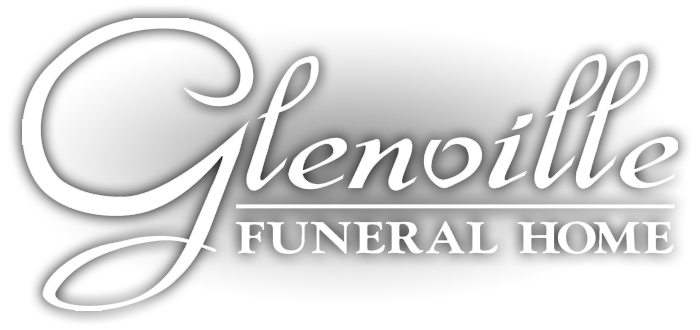Frequently Asked Questions
What is a funeral?
Funerals are recognized rituals for the living to show respect for the dead and to help survivors begin the grief process. A funeral gives the opportunity for family and friends of the deceased to gather and mourn the passing of their loved one, to share cherished memories, and celebrate their life.
What type of service should I have?
If no pre-arrangements have been made, the type of service is entirely up to you. Services are usually held at a funeral home or a place of worship. There is a wealth of different services, ranging from a traditional religious or military service, to something a little more personalized. Our funeral directors are more than happy to work with you to figure out what would be the most appropriate.
Can I personalize a funeral?
Of course you can, in fact more and more people are opting for a more non-traditional personalized service. There is no right or wrong way to celebrate somebody’s life. There are many unique ways to celebrate life, let the Funeral Director know exactly what your desires are and they will honor your wishes.
Do we need to have an obituary notice and what is included in one?
It is highly recommended to have an obituary notice that’s either placed in a local newspaper, or placed online. An obituary lets the public know that a death has occurred, and gives them information about the service. Obituaries generally include the deceased’s full name, age, city, date of birth, and the city they were living in when they passed away. It also includes the name of the deceased’s spouse, along with the names of anyone else significant in their lives, such as parents, children, or grandchildren. Space may be limited in a newspaper obituary, but you may include a little blurb on the life and legacy of the deceased. An online obituary or memorial website offers you the chance to add a lot more about the deceased.
Who are Funeral Directors and what do they do?
Funeral Directors are in charge of all the logistics following a death. They complete all the necessary paperwork, make arrangements for the transportation of the body, and put into action the choices made by the family in regards to the funeral service and the final resting place of the body. Beyond the logistics, funeral directors are there to provide moral support and guidance for someone coping with death.
Do you have to use a funeral director?
From experience and statistical data, it reveals that most people find it very trying to be solely responsible for arranging the details and legal matters surrounding a death. However, in most states, family members may bury their own dead although regulations vary. New York State mandates a funeral director for services involving embalming; funeral directors are trained professionals in Mortuary Science.
What happens if the death occurs in the middle of the night or on the weekend?
We are here to help. Funeral Directors are available 24 hours a day, 7 days a week, and 365 days a year.
Will someone come right away?
If you request immediate assistance, yes. If the family wishes to spend a short time with the deceased to say good-bye, we will wait for family's approval. We will come when your time is right.
If a loved one dies out of state, can the local Funeral Home still help?
Yes, they can assist you with out-of-state arrangements, either to transfer the remains to another state or from another state.
What is embalming and what purpose does it serve?
Embalming sanitizes and preserves the body; it also slows down the decomposition process and enhances the appearance of the body damaged by traumatic death or illness. Embalming gives time to the family of the deceased to arrange a service and allows the family the option of having an open-casket viewing.
Do I need to have an embalming?
No. In fact, some religions forbid embalming. Most states, however, require embalming when a reportable contagious disease or when remains are to be transported from one state to another by common carrier caused death or if final disposition is not to be made within a prescribed number of hours. Some countries require embalming by law in order for remains to leave or enter the country. In addition, if it's not against your religious custom, embalming is recommended, especially if there is an extended gap between death and burial or cremation.
Why have a public viewing?
Viewing is part of many cultural and ethnic traditions. Many grief specialists believe that viewing aids the grief process by helping the bereaved recognize the reality of death. Viewing is encouraged for children, as long as the process is explained and the activity voluntary.
How much does a funeral cost?
The cost of the funeral varies depending on the wishes you have. Many times you will hear people say that the average funeral costs around $5,000. However, that estimate is based on a price survey taken several years ago. Funeral prices, like everything else, have increased with inflation. Today, the average North American traditional funeral costs between $5,000 and $10,000. This price range includes the services at the funeral home, burial in a cemetery. While cremation is gaining in popularity, the traditional funeral is still the most popular manner for disposing of the deceased. Everything that goes into the cost of a funeral is written on an itemized list: all goods and services provided by the funeral home and what are called “cash advances” those are third party charges the funeral home may take care of for you by adding to their charges, or may ask you to pay that total before services are rendered. The cost includes all professional services including transportation, embalming and other preparations, the use of a facility for the ceremony, and the purchase of a casket or urn.
Why are funerals so expensive?
When compared to other major life cycle events, like births and weddings, funerals are not expensive. A wedding costs at least three times as much; but because it is a happy event, wedding costs are rarely criticized.
A funeral home is a 24-hour, labor-intensive business, with extensive facilities (viewing rooms, chapels, limousines, hearses, etc.; these expenses must be factored into the cost of a funeral. Moreover, the cost of a funeral includes not only merchandise, like caskets, but the services of a funeral director in making arrangements; filing appropriate forms; working with doctors, lawyers, insurance agents, ministers, florists, newspapers and others; and seeing to all the necessary details. Contrary to popular belief, funeral homes are largely family-owned with a modest profit margin.
Funeral Directors work an average of 40 hours per funeral. The cost of operating a funeral home is factored into the cost as well. Funeral homes are a 24-hour operation, with extensive facilities that need to be maintained and secured.
Who pays for funerals for the indigent?
Other than the family, there are veteran, union, and other organizational benefits to pay for funerals, including, in certain instances, a lump sum death payment from Social Security. In most states, some forms of public aid allowances are available from the state, county, or city or a combination. Most funeral directors are aware of the various benefits and know how to obtain them for the indigent. However, funeral directors often absorb costs above and beyond what is provided by agencies to insure the deceased a respectable burial.
Is cremation a substitute for a funeral?
No, cremation is an alternative to earth burial or entombment for the body's final disposition and often follows a traditional funeral service. In fact, according to FTC figures for 1987, direct cremation occurred in only 3% of deaths. A cremation is based on personal preference.
If I've decided on cremation, can I still have a funeral or a viewing?
Yes, quite often some sort of viewing precedes the actual cremation. Your Funeral Home can assist you with the necessary information for a funeral with a cremation following or a memorial service.
Is cremation as a means of disposition increasing?
Yes, and the public's interest in cremation continues to rise. Reasons why cremation is becoming more popular includes; costs, time-frame, and personal preference.
What if I have a question(s) that weren't answered on this FAQ?
We hope you will call us at (518) 399-1630. A group of trained professionals are readily available to help answer any of your questions, as well as present credible information in a transparent and courteous manner. At Glenville Funeral Home, we are here for you.
What do I do if I am not satisfied with the way a funeral was handled?
Funeral Services in the United States are regulated by the Federal Trade Commission. They can be reached by telephone at 1-877-FTC-HELP (382-4357) or you can fill out a form online at www.ftc.gov. In Canada, funeral services are regulated provincially and this information can be found on the Canadian Consumer Information website at www.consumerinformation.ca
Providing a full range of funeral services to Saratoga and Schenectady county residents since 1986.
We appreciate Google Reviews to help us educate and inform others on our services.






